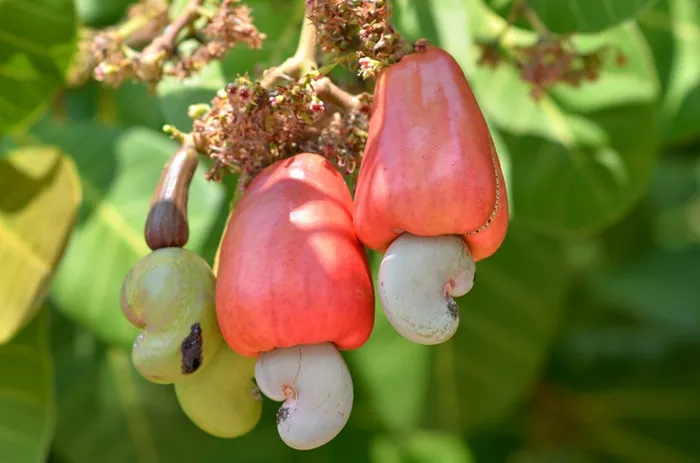Food allergies are a significant health concern worldwide, affecting millions of people and influencing dietary choices and lifestyle. Among these, nut allergies are particularly common, with cashews and peanuts being notable culprits. However, it’s not unusual for someone to be allergic to cashews but not peanuts, or vice versa. This discrepancy can be puzzling and concerning for those affected.
The Nature of Food Allergies: An Overview
Understanding Allergic Reactions
Food allergies occur when the immune system mistakenly identifies a harmless substance, such as a protein in food, as a threat. This triggers an immune response that can range from mild to severe. The body’s immune system produces immunoglobulin E (IgE) antibodies specific to the allergen, leading to the release of inflammatory chemicals like histamine upon subsequent exposures.
Symptoms of Food Allergies
Common symptoms of food allergies include hives, itching, swelling, gastrointestinal distress, respiratory issues, and, in severe cases, anaphylaxis—a life-threatening reaction that requires immediate medical attention. The severity and onset of symptoms can vary widely among individuals.
Tree Nuts vs. Legumes: Understanding the Differences
What Are Tree Nuts?
Tree nuts, such as cashews, almonds, walnuts, and hazelnuts, come from various species of trees. They are botanically distinct from legumes and have different allergenic properties. Cashews, specifically, come from the cashew tree (Anacardium occidentale) and are part of the Anacardiaceae family.
What Are Legumes?
Peanuts, on the other hand, are legumes. They belong to the Fabaceae family, which also includes beans, lentils, and peas. Peanuts grow underground and have a different botanical classification and protein structure compared to tree nuts.
Cross-Reactivity Between Nuts and Legumes
Although both tree nuts and peanuts can cause allergic reactions, they are not closely related botanically. This distinction is crucial for understanding why someone might be allergic to cashews but not peanuts. Cross-reactivity can occur between different allergens when the proteins share similar structures, but this is not always the case between tree nuts and legumes.
Specific Allergens in Cashews and Peanuts
Cashew Allergens
The major allergens in cashews are proteins known as Ana o 1, Ana o 2, and Ana o 3. These proteins can trigger an IgE-mediated immune response in sensitized individuals. The allergenic proteins in cashews are structurally different from those in peanuts, which explains why an allergy to one does not necessarily mean an allergy to the other.
Peanut Allergens
Peanuts contain several major allergens, including Ara h 1, Ara h 2, Ara h 3, Ara h 6, and Ara h 8. These proteins are unique to peanuts and do not share significant structural similarities with cashew allergens. Therefore, the immune system’s reaction to peanut proteins is distinct from its reaction to cashew proteins.
Molecular Differences and Immune Response
The molecular differences between cashew and peanut allergens mean that the immune system may recognize and respond to them differently. An individual’s sensitization to specific proteins determines their allergic response. Thus, someone allergic to cashew proteins may not react to peanut proteins and vice versa.
Genetic and Environmental Factors in Allergies
Genetic Predisposition
Genetics play a significant role in the development of food allergies. A family history of allergies, asthma, or eczema increases the likelihood of developing food allergies. However, genetic predisposition does not determine the specific allergens to which an individual will react. It influences the overall tendency to develop allergic conditions.
Environmental Influences
Environmental factors, such as exposure to allergens, dietary habits, and microbial environment, also impact the development of food allergies. Early exposure to certain foods and environmental allergens can either increase the risk of sensitization or promote tolerance.
Hygiene Hypothesis
The hygiene hypothesis suggests that reduced exposure to infections and microbes in early childhood can lead to an overactive immune system, increasing the risk of allergic diseases. This hypothesis helps explain the rising prevalence of food allergies in industrialized countries.
Diagnosis and Testing for Nut Allergies
Skin Prick Tests
Skin prick tests involve introducing a small amount of the allergen into the skin using a tiny needle. A positive reaction, indicated by a raised bump and redness, suggests an allergy to the tested substance. Skin prick tests can help identify specific allergies to cashews, peanuts, andother nuts.
Blood Tests (Specific IgE Testing)
Blood tests measure the levels of specific IgE antibodies to particular allergens in the blood. Elevated levels of IgE antibodies to cashew or peanut proteins indicate sensitization and potential allergy.
Oral Food Challenges
Oral food challenges, conducted under medical supervision, involve consuming small amounts of the suspected allergen to observe any allergic reactions. This test is considered the gold standard for diagnosing food allergies but carries a risk of severe reactions and must be performed in a controlled setting.
Component-Resolved Diagnostics
Component-resolved diagnostics (CRD) involve testing for specific allergenic proteins within a food. This advanced testing method can provide detailed information about the specific proteins causing the allergic response, helping to distinguish between allergies to different nuts.
Management and Treatment of Nut Allergies
Avoidance of Allergens
The primary management strategy for food allergies is strict avoidance of the allergen. For those allergic to cashews, this means carefully reading food labels and avoiding products that contain or may contain cashews. Cross-contamination is a concern, especially in processed foods.
Emergency Action Plans
Individuals with nut allergies should have an emergency action plan in place, including the availability of epinephrine auto-injectors (e.g., EpiPen) for use in case of anaphylaxis. It is crucial to educate family members, friends, and caregivers about the signs of an allergic reaction and the proper use of epinephrine.
Desensitization and Immunotherapy
Oral immunotherapy (OIT) is a treatment approach that involves gradually introducing small amounts of the allergen to build tolerance. This treatment is still under research and is not universally available. It should only be conducted under the guidance of an allergist.
Allergy-Friendly Alternatives
For those allergic to cashews, finding safe and nutritious alternatives is essential. Other nuts, seeds (like sunflower seeds or pumpkin seeds), and legume-based products can often serve as substitutes, provided they do not trigger allergic reactions.
Psychological and Social Impact of Nut Allergies
Quality of Life Considerations
Living with food allergies can significantly impact the quality of life. Anxiety about accidental exposure, dietary restrictions, and the need for constant vigilance can be stressful. Support from healthcare providers, family, and allergy support groups can help manage these challenges.
Education and Advocacy
Educating others about food allergies and advocating for allergy-friendly policies in schools, workplaces, and public spaces are important for creating a safer environment for individuals with allergies. Awareness campaigns can help reduce the stigma and increase understanding of the challenges faced by those with food allergies.
Conclusion: Navigating the Complex World of Nut Allergies
Understanding why someone might be allergic to cashews but not peanuts involves considering the unique allergenic properties of these foods, the individual’s genetic and environmental background, and the body’s specific immune response. While both cashews and peanuts can cause serious allergic reactions, the differences in their protein structures mean that allergies to these foods do not always overlap.
[inline_related_posts title=”You Might Be Interested In” title_align=”left” style=”list” number=”6″ align=”none” ids=”8802,8798,8794″ by=”categories” orderby=”rand” order=”DESC” hide_thumb=”no” thumb_right=”no” views=”no” date=”yes” grid_columns=”2″ post_type=”” tax=””]































